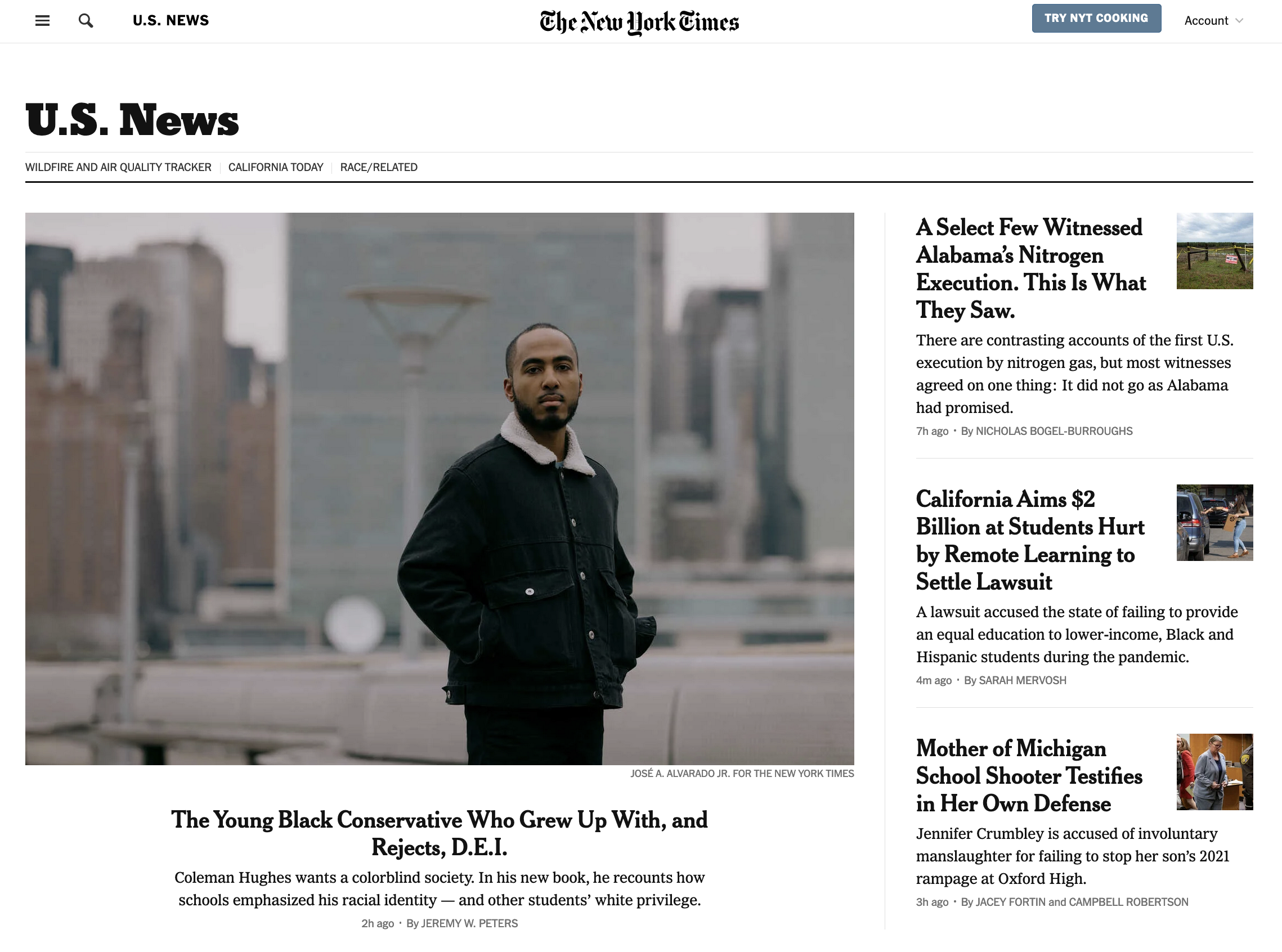Media
for The New York Times: The Young Black Conservative Who Grew Up With, and Rejects, D.E.I.
josé a. alvarado jr.
Feb 2, 2024
To support the idea, Democrats invited the influential author Ta-Nehisi Coates, who had revived the reparations issue in an article in The Atlantic, and the actor and activist Danny Glover.
Republicans turned to a virtual unknown: a 23-year-old philosophy major at Columbia University, Coleman Hughes.
In the hearing, Mr. Hughes, looking very much his age, testified to the House subcommittee that not paying reparations after the Civil War was “one of the greatest injustices ever perpetrated.”
But, he continued, they should not be paid now. “There’s a difference between acknowledging history and allowing history to distract us from the problems we face today,” he said, pointing to endemic problems that affect Black Americans, such as poor schools, dangerous neighborhoods and a punitive criminal justice system.
Some in the audience booed. The Democratic subcommittee chairman, Steve Cohen of Tennessee, pleaded for calm — “chill, chill” — but then suggested that Mr. Hughes’s testimony had been presumptuous.
More than four years later, Mr. Hughes, now 27, has emerged as something of a rarity in the tense national conversation over how race should factor into public policy: He is a young Black conservative, who argues — in his writings, a podcast and a YouTube channel with about 173,000 subscribers — that schools have taught students of his generation to obsess over their racial identity, while blocking arguments that challenge their worldview.
Mr. Hughes is not the first Black thinker to reject progressive politics or criticize the educational establishment. But unlike most of his conservative mentors, Mr. Hughes is young enough to have been raised in the very pedagogy that they decry.
In his new book, “The End of Race Politics: Arguments for a Colorblind America,” to be released on Feb. 6, Mr. Hughes recounts what it was like to grow up in the liberal enclave of Montclair, N.J., and then to head to Columbia, where he said the campus culture was fixated on affinity groups, diversity, equity and inclusion programs, microaggressions and “white privilege.”
He uses these stories to argue for a colorblind society.
The goal is not to avoid noticing race, which he says is impossible. (In fact, he admonishes people who say things like, “I don’t see color” and asks them to use phrases like, “I try to treat people without regard to race.”)
Photographed for The New York Times, with words by Jeremy W. Peters
 The Young Black Conservative Who Grew Up With, and Rejects, D.E.I.
The Young Black Conservative Who Grew Up With, and Rejects, D.E.I.Coleman Hughes wants a colorblind society. In his new book, he recounts how schools emphasized his racial identity — and other students’ white privilege.
Nytimes.com


